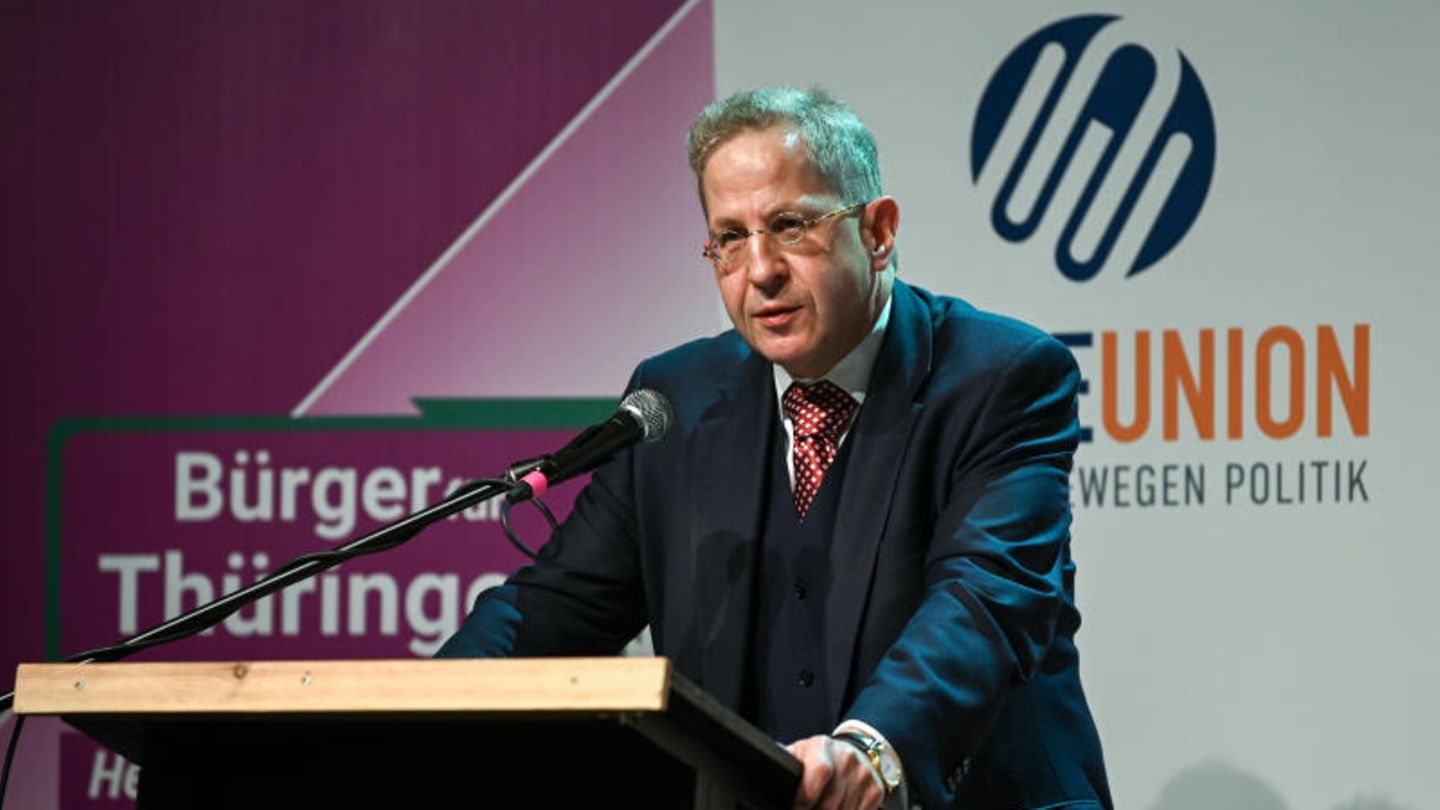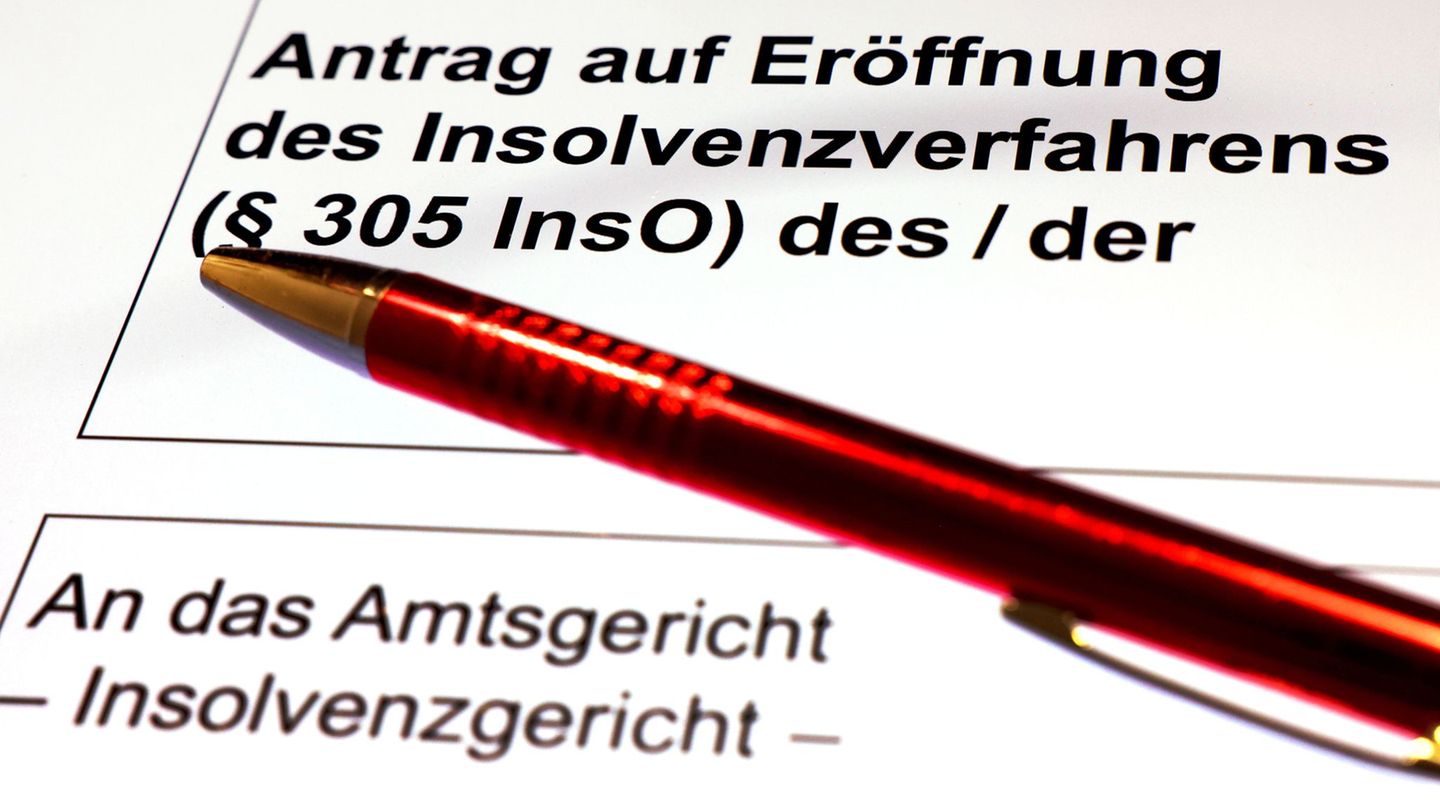According to research by the magazine “Kontraste” and the news portal “t-online.de”, the Federal Office for the Protection of the Constitution (BfV) is monitoring its former head Hans-Georg Maaßen and has saved him in the area of right-wing extremism. This is the result of the internal analysis of an “extensive collection of material” on Maaßen. The 61-year-old is currently often in the spotlight as chairman of the Union of Values. At Maaßen’s urging, the club, which was formerly close to the CDU, decided to merge into an independent party. The Union of Values wants to take part in the state elections in Brandenburg, Saxony and Thuringia next autumn and could become the AfD’s majority candidate.
CDU members were outraged by the right-wing conservative group’s split. Maaßen was also the target of criticism – and not for the first time in his career. The former president of the BfV had an exemplary career within the German state apparatus, but voices were raised early on that accused him of being “blind in the right eye.”
Hans-Georg Maaßen quickly worked his way up the Ministry of the Interior
Maaßen was born in Mönchengladbach in 1962. He joined the CDU as early as 1978. After school and high school, he studied law and received his doctorate in 1997 at the University of Cologne on the subject of “The legal status of asylum seekers in international law”. The constitutional judge Gertrude Lübbe-Wolff later discussed his work in a specialist magazine and criticized that Maaßen’s aim was to provide evidence of unexploited scope for a more restrictive refugee policy.
From 1991, Maaßen joined the Ministry of the Interior and ten years later became head of the “Immigration Project Group”. Maaßen first came into the public eye under SPD Interior Minister Otto Schily: in 2002 he was entrusted with handling the Murat Kurnaz case. Kurnaz, a Turkish citizen born in Bremen, was imprisoned by US forces in the Guantanamo Bay prison camp shortly after the September 11, 2001 attacks and held there without charge for almost five years.
Maaßen should clarify whether Kurnaz should be brought back to Germany or whether his entry permit should be revoked. Maaßen took the position that Kurnaz was not allowed to return to the Federal Republic because his residence permit had expired – after all, he had been abroad for more than six months. The press and politicians sharply criticized the view.
For Maaßen, this was just the beginning of his career in the Ministry of the Interior. In 2003, Maaßen became head of the immigration law department, and from 2008 he headed the counter-terrorism staff in the public security department.
The NSU scandal brought Maaßen to the top of the Office for the Protection of the Constitution
After the terrorist group “National Socialist Underground” was exposed, demands for clarification were raised. The first NSU investigative committee in 2011 was supposed to clarify why the police and the Office for the Protection of the Constitution were unable to prevent the right-wing terrorists’ series of murders, which lasted more than ten years and left eleven victims, and why the terrorist group could not be exposed. Maaßen represented the federal government on the committee.
Almost a year later, the Bundestag decided to appoint him head of the Federal Office for the Protection of the Constitution as the successor to Heinz Fromm. Fromm had to resign because of the so-called “NSU shredding affair”, which revealed that shortly after the terrorist group was exposed, files from the Federal Office for the Protection of the Constitution that could have helped to clear up the case were destroyed on a large scale.
Maaßen subsequently promised to provide clarification and to restore trust in the authority. But just a year later, the next scandal hit him. In the course of the so-called “NSA affair” in 2013, it became public that the BfV, under the leadership of Maaßen, was said to have passed on confidential data to the US secret service National Security Agency (NSA) and to have collaborated with eight other US services. In addition, the BfV is said to have tested the NSA spy software “XKeyscore” in this context.
Criminal charges because of the report by “netzpolitik.org” led to the first calls for his resignation
Two years later, the first calls for Maaßen’s resignation were made. In 2015, the President of the BfV initiated investigations against journalists from the “netzpolitik.org” portal for treason with several criminal complaints against unknown persons. The bloggers had published that the BfV had earmarked almost three million euros in its secret budget plan to set up a unit for “mass data collection” in social networks. The criminal charges were publicly interpreted as an attack on press freedom. Green Party politician Renate Künast, among others, then called for Maaßen’s resignation or dismissal. According to Künast, he has a “disturbed relationship with the basic democratic principles.”
At the beginning of 2017, Maaßen became entangled in contradictions. He claimed that the BfV had not placed an informant in the vicinity of the terrorist Anis Amri, who murdered 13 people in the attack on Berlin’s Breitscheidplatz. Maaßen later backtracked and explained that his office had had an informant in the mosque that Amri regularly visited, but that he had not observed him and had not recognized him in pictures.
In the summer of 2018, former AfD member Franziska Schreiber published a book in which she accused Maaßen of having met the then AfD leader Frauke Petry several times in 2015 and giving her tips on how the party could avoid being observed by the Office for the Protection of the Constitution to become. Maaßen contradicted the allegations.
In the following months it became known that Maaßen had exchanged ideas with, among others, Alexander Gauland and Stephan Brandner. In 2019, the BfV confirmed five meetings between Maaßen and AfD people and demanded that its president clarify whether, as Schreiber claimed, he had advised the AfD to expel Björn Höcke from the party. Maaßen then stated that he could not remember the content of the conversations.
Maaßen doubted that there were any “hunts” in Chemnitz
In 2018 there was renewed criticism of Maaßen. After the violent riots by right-wing extremists in Chemnitz, the BfV president doubted in an interview with “Bild” that there had been hunts against migrant-looking people in the city. A video documenting one of the incidents discredited Maaßen as a possible fake. He has “no evidence that the video circulating on the Internet about this alleged incident is authentic,” said Maaßen. There are “good reasons” that the video is “targeted misinformation”.
The Dresden Public Prosecutor’s Office contradicted Maaßen’s assessment. At the urging of Federal Interior Minister Horst Seehofer, he later qualified his statement and explained that he only considered the interpretation of the video as a hunt to be inauthentic. In his opinion, the video was posted on the Internet by an untrustworthy source.
On November 5, 2018, Seehofer asked Federal President Frank-Walter Steinmeier to immediately place Maaßen into temporary retirement. The background was a speech in which Maaßen once again defended his opinion on the incidents in Chemnitz and stated that he had identified “left-wing extremist forces in the SPD”.
The hunts in Chemnitz were “made up” by the media and politicians or the false information was spread unchecked. Seehofer called the comments “unacceptable.”
After retiring, he became involved in the Union of Values
After his retirement, Maaßen appeared primarily as a member of the Union of Values. He repeatedly caused a sensation with public appearances, postings on social networks or interviews in which he shared conspiracy-ideological views.
In February 2023, the CDU decided to initiate party expulsion proceedings against Maaßen. Maaßen himself resigned from the party at the end of January 2024. He had previously suggested turning the right-wing conservative association Values Union into its own party. The association decided this at a general meeting.
Maaßen wants to run with the party in the state elections in Saxony, Thuringia and Brandenburg in the fall. He did not rule out collaboration with the AfD. The Union of Values could thus become the AfD’s majority source.
At the beginning of February 2024 it became known that the BfV was observing his former boss and storing him in the area of right-wing extremism.
Sources: , “”, “”, , “”, “”, “”
Source: Stern
I have been working in the news industry for over 6 years, first as a reporter and now as an editor. I have covered politics extensively, and my work has appeared in major newspapers and online news outlets around the world. In addition to my writing, I also contribute regularly to 24 Hours World.




